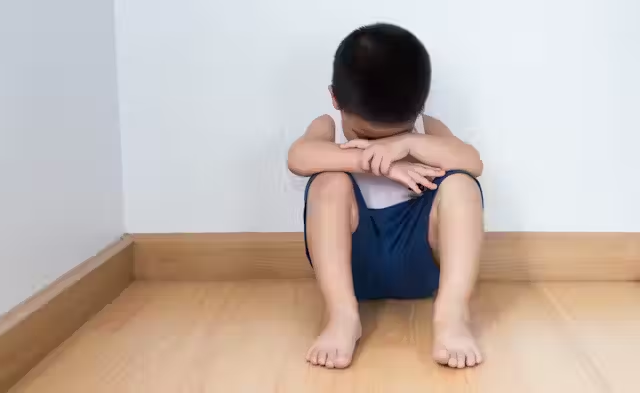Remember the magical incantation “Abracadabra” which means “I create as I speak”. Words are the most powerful tools because of the spell that is casted by them. It might seem something unusual and magical, but we perform it every day. Every time a word is being spoken to a child, the magic is being casted, and we are creating the reality of the child. Every time we say, “You are not good enough”, along with damaging their self-esteem, it makes the child struggle academically and emotionally. With each “Why can’t you be more like your brother?” makes the little angel question their own identity and worth as a person. Instead say; “You are brave” and watch the child facing the world with a lion’s heart. Practice saying beautiful phrases like “You are kind and beautiful”, “I noticed your hard work”, “You matter to me, there’s no one like you” and you will see how beautifully your child blooms.
Unfortunately, in our country passing negative remarks and doing unnecessary criticism on children in the name of “Tough love” has become so common that it doesn’t seem to be a problem anymore. Harsh words are spoken everywhere be it a dinner table, backseat of the car, in the classroom and while helping with the homework. We don’t even realize that with every judgment, criticism and taunt we are shaping the internal narrative of the child. Would’nt it be better to teach them self-love, uplift their self-esteem, make them confident instead of teaching them ‘Toughness’. World will eventually teach them resilience but as primary guardians and caretakers our duty is to love them and raise spiritually grounded and emotionally intelligent children.
Key impacts of language use include:
1. Psychological Impact: A study conducted on Verbal Abuse and Childhood Development by Martin Teicher and colleagues (Harvard Medical School, 2006-2011) to examine how verbal abuse impacts child’s psyche. Unlike physical abuse, the verbal abuse has no visible scars, and it can be easily dismissed. Children can experience depression, anxiety, dissociation and extreme anger issues. They may face low self-esteem and self-confidence issues leading to identity distortion. They may develop trust issues due to long-term exposure of being yelled at, insulted and belittled in front of people.
2. Emotional Development: Parents are supposed to be “Safe Space” where children can feel emotionally secure and safe. Use of language which soothes, comforts and validates the child can provide emotional safety. On the other hand, using harsh language will make them feel ashamed, rejected and belittled. Children are more likely to express their feelings when they are emotionally safe. Otherwise, they can become emotionally distant and reserved for the rest of their life. The children who are incapable of trusting their primary caretakers go out and seek people to trust outside of their homes which turns out to be worse.
3. Environment and Role Models: Apart from primary caregivers’ child’s psyche is shaped by broader environment –teacher, siblings, friends, media etc. The way parents and teachers are addressing the children becomes their inner voice. Communication with siblings and friends also influences child’s behavior and self-image. Whether it’s the language of compassion, love, hatred or jealousy, it still contributes to the story children tell about themselves for who they are. Parents should be mindful of the language being used around their child by siblings and friends, ensuring that no words could harm their self-esteem. In this digital age, having access to social media made crucial for parents to monitor (not only the screen time but) what is being consumed by the children, repeated exposure to unrealistic beauty and life standards may make them insecure and or lead their minds to undesirable direction. Hence, it’s not only about the language being spoken to them but what they read, watch and get inspired from.
4. Long-Term Consequences: The use of positive or negative words can leave long lasting prints on children’s mind.
Impact of Negative Words
• Low self-esteem
•Fear of rejection and abandonment
•Trust issues/ People pleasing
•Inability to express emotions
•Toxic inner voice and distortion of image
Impact of Positive Words
• High self-esteem and confidence
• Strong identity
• Compassion and trustworthiness
• Emotional Intelligence
• Creating healthy boundaries
In the end, as parents and educators we must pause and reflect upon our words and be mindful of its ever-lasting impact on children, because they might forget what we did FOR them, but they will certainly remember what we did TO them. Words are indeed spells where a single beautiful sentence can make them believe in themselves or a single cruel sentence can cause the wound they will end up spending lifetime to heal. So, lets speak with intention, wrapped in empathy and tenderness, a soft touch in our tone as our words are going to live inside our children forever because it will.
Stay updated with the latest news, analyses, and daily happenings —
join
The Catchline’s official WhatsApp channel today!



